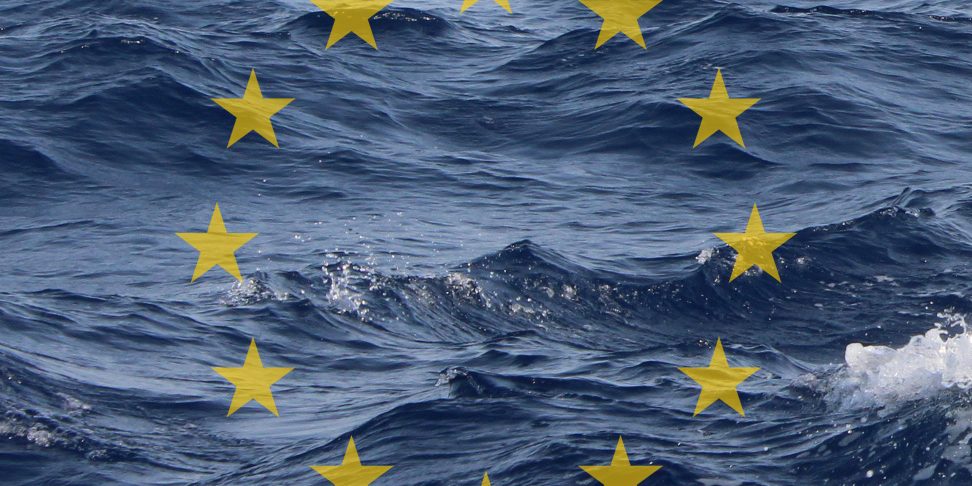With its EU Presidency beginning today, the German Federal Government has the opportunity to push forward a migration agenda that conforms to human rights – and thus to give substance to the mere lip service that has been paid in recent years with regard to sea rescue. Sea-Watch calls on the German government to make full use of the opportunities offered by its mandate in the next six months and to implement three simple agenda items.
Marie Naaß, Head of Advocacy at Sea-Watch: “Instead of continuing to actively promote the crisis of humanity in the Mediterranean, the German EU Council Presidency must focus on human rights and act accordingly. Compliance with existing law alone would fundamentally change the situation in the Mediterranean. The mass drowning in the Mediterranean requires the activation of the Integrated Political Crisis Response to enable a civil sea rescue mission. Instead of the unjust Dublin system, we need a human rights- and solidarity-based solution at EU level“.
Human Rights as a Key Guideline for the German EU Council Presidency
1. RESPECT OF APPLICABLE LAW
In the Mediterranean, the European Union and European Member States have been breaking applicable law for several years. We therefore urge the German Presidency to guarantee that all future legislation which finds its roots in the upcoming presidency, as well as agreements and declarations between states, are in full compliance with applicable law. In particular, they must observe fundamental principles of maritime law governed by UNCLOS, the SOLAS and SAR conventions, as well as international human rights and refugee law principles such as the principle of non-refoulement, all of which are enshrined in the Geneva convention, ICCPR, CAT, ECHR and customary law. It does not seem progressive to ask states to respect existing legal frameworks, but we live in a world in which simple compliance with a certain aquis would already change a great deal – the support and finance provided to the so-called Libyan Coast Guard would have to be stopped immediately, the non-assistance of EU Member States and the complicity of EU agencies in human rights violations would need to be prosecuted, and EU missions in the Mediterranean such as IRINI would need to be equipped with a mandate to rescue.
Aside from simply respecting law regarding its policy-making actions, the Council Presidency could also go one step further, namely calling the situation in the Mediterranean by its name:
2. LAUNCH OF THE INTEGRATED POLITICAL CRISIS RESPONSE (IPCR)
The EU Integrated Political Crisis Response (IPCR) is a tool approved by the Council of the EU in 2013 which serves to reinforce the European Union’s ability to take rapid decisions when facing major natural or man-made crises requiring a response at EU political level, providing the presidency with a number of unique tools for coordinating crisis-response at the highest political level. We therefore urge the German government to define the mass drown- ing of people on the move in the Mediterranean Sea as a “crisis”, and enable the financing of a civil sea rescue mission in the Mediterranean in accordance with Article 214 TFEU.
3. SOLIDARITY SOLUTION AT EU LEVEL
The reform of the Dublin system has been on the EU’s legislation agenda for years. The Dublin system was not de- signed to ensure the sharing of responsibility and implementation of solidarity, but rather to assign responsibility to individual Member States. In 2017, the European Parliament approved a Dublin reform proposal which stood to put an end to the core of the Dublin mechanism – however this proposal has been blocked by the EU Council since then. We call on the German Presidency to put this reform proposal back on the agenda of the new legislature, and do its homework as co-legislator – especially with regards to the upcoming Pact on Migration.
Download Position Paper here (PDF).











